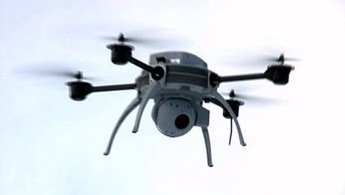
The city of Barrie, Ontario, Canada, will take a closer look at regulating technology that’s eyeballing Barrie.
Council has asked staff to investigate a potential bylaw to regulate home security video surveillance systems, domestic closed-circuit television surveillance, and drones with cameras.
“I just want to see if we can find a balance between privacy and security – because the technology’s here and we know it is here. But where’s the balance?” said Councillor Peter Silveira.
Other councillors have the same issues but are also concerned about regulation.
“I just get a little nervous when government is looking at surveillance,” Councillor Mike McCann said.
He supports the investigation, but wants to know the motivation and if there are complaints by neighbours or businesses.
“Is is getting a little scrappy out there and we need to regulate what people are doing?” McCann asked.
Councillor Andrew Prince voted against the probe.
“I am supportive of the idea as I believe no neighbour should be filming and/or taking pictures of another person’s property or children,” he said. “The concern I have is this is a police matter.
“I believe in less government regulations into people’s lives and I feel the city is going down a path adding to further government interference in the lives of its residents.”
City clerk Dawn McAlpine says two Ontario municipalities have passed bylaws prohibiting cameras being focused on other private properties, but she expects enforcement would be a problem – specifically permission to go on private property to determine which way a camera is facing.
McAlpine says she is not aware of any charges being implemented.
Tobi Cohen, with the Office of the Privacy Commissioner of Canada, said its regulations don’t apply to individuals who collect, use, or disclose personal information strictly for personal and non-commercial purposes.
“That being said, privacy protection and safeguards against unlawful surveillance are provided elsewhere through the Charter of Rights and Freedoms, the Criminal Code, and through provincial laws,” he said in an e-mail.
While Transport Canada has a number of regulations concerning drones —how high they can fly, how close they can be to buildings— the federal department does not regulate cameras on these flying machines.
Brian Beamish, Ontario’s information and privacy commissioner, said in an e-mail he doesn’t have jurisdiction over homeowners who use security cameras or collect data for personal use.
Some municipalities have bylaws governing the use of domestic closed circuit video systems, he said, and the authority of municipalities to enact bylaws is set out in the Municipal Act. It regulates the use of ‘protective elements’ which could include surveillance systems.
The province does have rules for the collection, use, and disclosure of personal information by government institutions, but they don’t apply to cameras on individuals’ private property or the use of drones by private citizens.
“Matters relating to the use of surveillance that results in invasion of privacy, voyeurism or criminal harassment would be covered by criminal law in Canada,” Beamish said. “If security cameras unreasonably invade privacy, users are also potentially open to legal action through the civil court system.”
“Other municipalities are having the same problems we are and many have already adopted a policy about video cameras,” Silveira said. “I want to know what other municipalities are doing.”
Source: thebarrieexaminer.com
